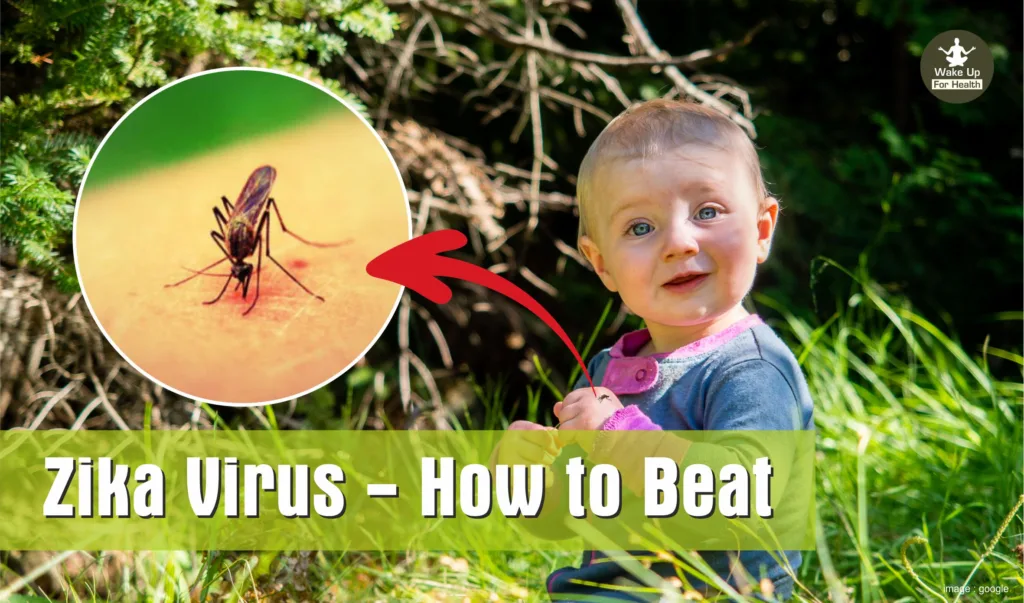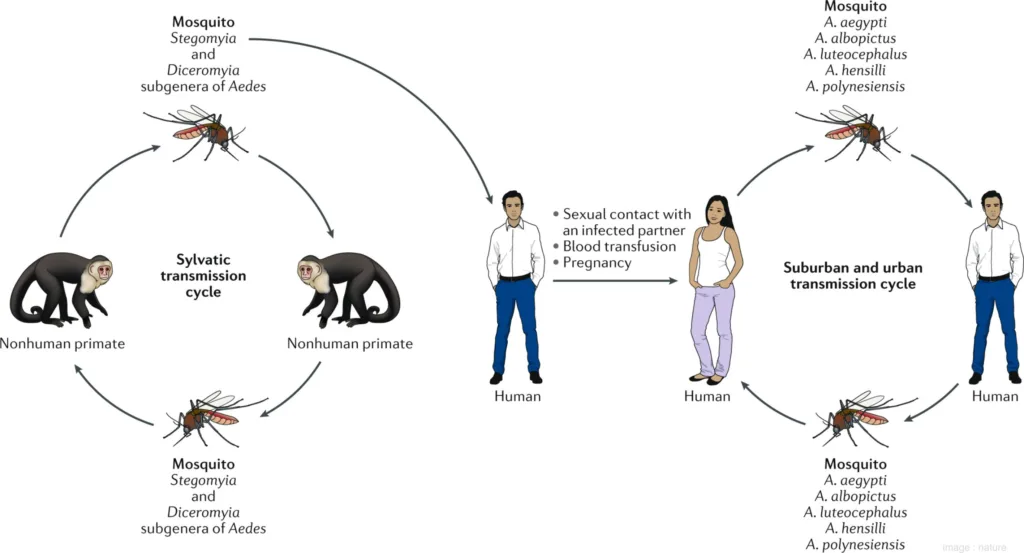Zika virus outbreaks occur worldwide, mostly in warm, tropical climates where mosquitoes thrive. In 2015 and 2016, Florida, Texas, Puerto Rico, and the U.S. Virgin Islands experienced outbreaks. Even then, most sites had fewer than 50 cases.
As of September 2020, there were 13 Zika virus infections in US territories possibly acquired through mosquitoes. There was only one case in the United States, and that person became ill while traveling outside the country. Here we will know about the way to Beat Zika Virus to know about causes, symptoms, prevention and treatment.

Zika Virus Overview, Symptoms, Causes, Prevention Strategies, Treatment Options
Zika virus is an infectious disease that is spread mainly through the bite of infected mosquitoes. In most people, Zika virus does not cause serious symptoms. However, if a woman is infected while pregnant, it may increase the risk of certain birth defects in the developing fetus.
How Does Zika Virus Spread?
You are most likely to get the Zika virus from the bite of an Aedes aegypti mosquito. These mosquitoes thrive in tropical climates. Mosquitoes pick up the virus when they bite a person infected with Zika. You can get the virus if an infected mosquito bites you. Apart from this, Zika virus also spreads in the following ways:-
- From Pregnant woman to fetus.
- Having sex with an infected person.
- Blood transfusion, but this is extremely rare.
Also Know About Chikungunya Virus – Symptoms & Treatment
Transmission of Zika.
Zika virus is transmitted primarily by the bite of a mosquito infected with the genus Aedes, primarily Aedes aegypti, in tropical and subtropical regions. Aedes mosquitoes typically bite during the day, with an increase in early morning and late afternoon/evening.
It is the same mosquito that transmits dengue, chikungunya and yellow fever. Zika virus is also transmitted from mother to fetus during pregnancy, through sexual contact, transfusion of blood and blood products, and organ transplantation.
Who Can Infected by Zika Virus?
Anyone who hasn’t had Zika virus and travels to or lives in an area where the virus is present can get it. Also People who have Zika virus develop immunity to the disease. You are unlikely to get another Zika infection even if you are exposed to the virus again.

What Causes a Zika Virus Infection?
Zika is a virus – specifically a flavivirus. Arthropods (insects with an external shell), such as mosquitoes and ticks, carry flaviviruses. Other flaviviruses include dengue fever and yellow fever.
What are the Complications of Zika Virus?
Most people experience mild symptoms. Rarely, an infected person develops Guillain-Barré syndrome. This condition causes the immune system to attack the nervous system. Symptoms such as muscle weakness and paralysis usually go away with time.
Zika virus infection during pregnancy is known to cause microcephaly and other congenital abnormalities in the developing fetus and newborn. Zika infection in pregnancy causes complications in pregnancy such as fetal loss, stillbirth, and preterm birth. Zika virus infection also precipitates Guillain-Barré syndrome, neuropathy, and myelitis, especially in adults and older children.
Research is ongoing to investigate the effects of Zika virus infection on pregnancy outcomes, strategies for prevention and control, and other neurological disorders in children and adults.
What are the Symptoms of Zika Virus Infection?
Many people infected with Zika virus have mild symptoms or no symptoms at all. Zika symptoms may appear three to 14 days after infection and last up to a week. You may experience:
- Pain and redness in the eyes.
- Fever.
- Headache.
- Joint pain or muscle pain.
- Skin rash.
How is Zika Virus Infection Diagnosed?
If you show symptoms of an infection or have traveled to an area with an active Zika virus outbreak, your healthcare provider may order blood or urine tests to check for the virus. Testing should happen as soon as you have symptoms.
How much you know about Leukemia Symptoms?
How Does Zika Virus Affect Pregnancy?
Pregnant women who get Zika virus can transmit the infection to the fetus. The virus increases the risk of microcephaly, a birth defect that affects brain development. Babies born with this birth defect have smaller brains and smaller heads. The CDC recommends that pregnant people not travel to areas with known outbreaks of Zika virus. The risk of Zika virus also increases:
1. Low birth weight (newborns who weigh less than 5 pounds, 8 ounces).
2. Miscarriage, early pregnancy loss.
3. Premature labor, delivery before the 37th week of pregnancy.
4. Stillbirth, giving birth to a dead fetus in the uterus after the 20th week of pregnancy.
How is Zika Virus Infection Treated?
There is no vaccine or specific medicine for Zika virus. You can take these steps to reduce symptoms:
- Drink plenty of fluids.
- Gets a lot of rest.
- Take over-the-counter pain medicines for fever and pain. Be sure to consult a doctor before taking medicines.
Protect yourself from mosquitoes that spread Zika Virus?
These steps can protect you and your family from mosquito bites:
- Apply insect repellent registered with the Environmental Protection Agency (EPA).
- Get rid of standing water in buckets or puddles around your home.
- Stay indoors at dusk and dawn, when mosquitoes are most active.
- Treat clothing and shoes with permethrin, an insecticide.
- Wear long-sleeved pants and pants outside.
(Disclaimer: This article is for general information only. It is just to wake you up for your health purpose. Out intension is not to mislead or It cannot in any way be a substitute for any medicine or treatment. Always contact your doctor for more details.)
1 thought on “Understanding Zika Virus: Causes and Treatment”